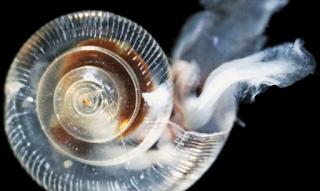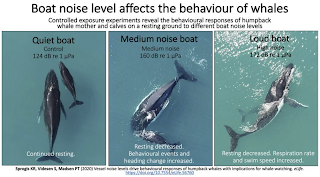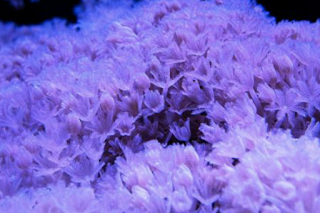‘Whopping failure’ of recycling amid pandemic, New dogfish species discovered in Japan, Upgraded guidelines for whale-watching boats, Vanessa O’Brien making history and more…
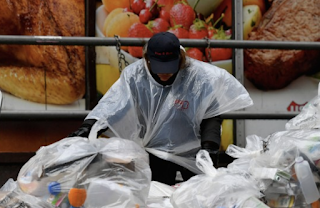
Senators on Wednesday highlighted holes in recycling infrastructure exposed by the coronavirus pandemic, questioning how Congress can stop a plastic pollution crisis from emerging alongside a public health crisis. Many municipalities paused recycling pickup programs as part of stay-at-home orders during the pandemic, causing recyclables to either end up in landfills or pile up outside. And the Centers for Disease Control and Prevention is encouraging businesses to use disposables, and cities have pulled back on single-use plastic bans, further contributing to pollution.
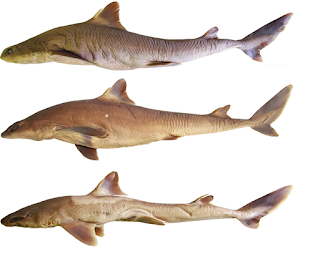 Newly discovered creatures can often be as impressive and exciting as the ones from the Japanese movies and shows. Many of those fictional characters, including inhabitants of the famous Pokémon universe, might have their analogs among the real animals native to Japan. Maybe, a new species of the dogfish shark published in the open-access journal Zoosystematics and Evolution is also “a real Pokémon” to be? A new deep-water dogfish shark: Squalus shiraii, was discovered in the tropical waters of Southern Japan by an international team of scientists, led by Dr. Sarah Viana from the South African Institute for Aquatic Biodiversity.
Newly discovered creatures can often be as impressive and exciting as the ones from the Japanese movies and shows. Many of those fictional characters, including inhabitants of the famous Pokémon universe, might have their analogs among the real animals native to Japan. Maybe, a new species of the dogfish shark published in the open-access journal Zoosystematics and Evolution is also “a real Pokémon” to be? A new deep-water dogfish shark: Squalus shiraii, was discovered in the tropical waters of Southern Japan by an international team of scientists, led by Dr. Sarah Viana from the South African Institute for Aquatic Biodiversity.
3. Arctic Ocean acidification worse than expected
The Arctic Ocean will take up more CO2 over the 21st century than predicted by most climate models. This additional CO2 causes distinctly stronger ocean acidification. These results were published in a study by climate scientists from the University of Bern and École normale supérieure in Paris. Ocean acidification threatens the life of calcifying organisms—such as mussels and “sea butterflies”—and can have serious consequences for the entire food chain.
4. New guidelines for noise level restrictions to protect the wellness of whales.
We need new guidelines to shield whales from human-made noise to ensure them some peace and quiet. It is no good keeping whale-watching boats out of whales’ sight if the noise from the boats’ engines disturb the whales most. And whales can hear the boats’ engines from far away, according to a Danish-Australian research team. Public authorities around the globe have set restrictions on whale-watching boats in order to protect whales.
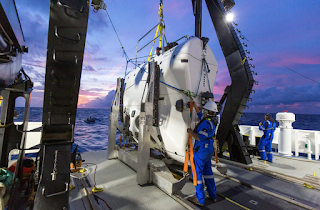 Vanessa O’Brien made history by becoming the second woman to plunge seven miles beneath the ocean’s surface, the Mariana Trench, the greatest of the sea’s many recesses. The deep’s muddy bottom lies nearly seven miles down in inky darkness under crushing pressure. “I made it,” Vanessa O’Brien, 55, a star of adventure tourism, tweeted. She called herself the first woman “to Earth’s highest & lowest points!” Her moment comes after the plunge on Sunday of Kathy Sullivan, 68, an oceanographer, astronaut and the first American woman to walk in space.
Vanessa O’Brien made history by becoming the second woman to plunge seven miles beneath the ocean’s surface, the Mariana Trench, the greatest of the sea’s many recesses. The deep’s muddy bottom lies nearly seven miles down in inky darkness under crushing pressure. “I made it,” Vanessa O’Brien, 55, a star of adventure tourism, tweeted. She called herself the first woman “to Earth’s highest & lowest points!” Her moment comes after the plunge on Sunday of Kathy Sullivan, 68, an oceanographer, astronaut and the first American woman to walk in space.
6. Knock knock. Who’s there? How coral let symbiotic algae in.
New work from a team of Carnegie cell, genomic, and developmental biologists solves a longstanding marine science mystery that could aid coral conservation. The researchers identified the type of cell that enables a soft coral to recognize and take up the photosynthetic algae with which it maintains a symbiotic relationship, as well as the genes responsible for this transaction. Corals are marine invertebrates that build large exoskeletons from which reefs are constructed. But this architecture is only possible because of a mutually beneficial relationship.
7. Virginia Tech researchers study disease outbreaks in marine mammals.
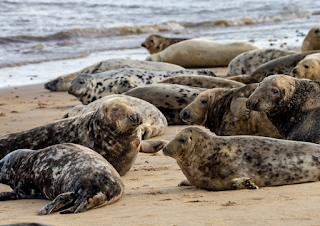 As the COVID-19 pandemic sweeps across the globe, people are beginning to understand, at a very personal level, the ways in which infectious diseases can devastate life. But disease outbreaks are not confined to just humans or to life on land. “We are perhaps more alert than ever to the catastrophic impacts of infectious disease in both humans and animals. Our task now is to begin to understand what drives these events, particularly in species like marine mammals, where our knowledge is even more limited,” said Claire Sanderson, a research associate in the Department of Fish and Wildlife Conservation.
As the COVID-19 pandemic sweeps across the globe, people are beginning to understand, at a very personal level, the ways in which infectious diseases can devastate life. But disease outbreaks are not confined to just humans or to life on land. “We are perhaps more alert than ever to the catastrophic impacts of infectious disease in both humans and animals. Our task now is to begin to understand what drives these events, particularly in species like marine mammals, where our knowledge is even more limited,” said Claire Sanderson, a research associate in the Department of Fish and Wildlife Conservation.8. Controlled environment and minimizing transport time in rehabilitation of sea turtles could reduce their stress levels.
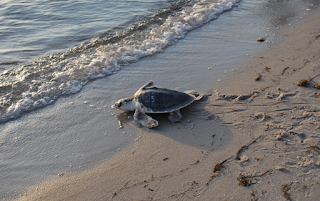 A new study co-authored by scientists with the New England Aquarium has found that rehabilitated Kemp’s ridley and loggerhead sea turtles experience a substantial stress response when transported to release locations in the southern United States but that the turtles remained physically stable and ready for release. Every year, dozens and even hundreds of “cold-stunned” turtles are treated at the Aquarium’s Quincy Animal Care Center for a variety of life-threatening medical conditions that result from weeks of hypothermia and the inability to feed during stranding season.
A new study co-authored by scientists with the New England Aquarium has found that rehabilitated Kemp’s ridley and loggerhead sea turtles experience a substantial stress response when transported to release locations in the southern United States but that the turtles remained physically stable and ready for release. Every year, dozens and even hundreds of “cold-stunned” turtles are treated at the Aquarium’s Quincy Animal Care Center for a variety of life-threatening medical conditions that result from weeks of hypothermia and the inability to feed during stranding season.
9. Fossilized fish could indicate rich deposits of valuable rare-earth metals
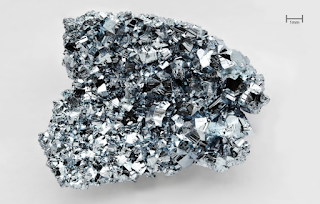 Rare metals crucial to green industries turn out to have a surprising origin. Ancient global climate change and certain kinds of undersea geology drove fish populations to specific locations. As remains of the fish fossilized, they accumulated valuable elements and these fossil beds became concentrated deposits of such metals. This discovery could aid future prospects for deposits of so-called rare-earth elements in other undersea locations.
Rare metals crucial to green industries turn out to have a surprising origin. Ancient global climate change and certain kinds of undersea geology drove fish populations to specific locations. As remains of the fish fossilized, they accumulated valuable elements and these fossil beds became concentrated deposits of such metals. This discovery could aid future prospects for deposits of so-called rare-earth elements in other undersea locations.
———————————————–

